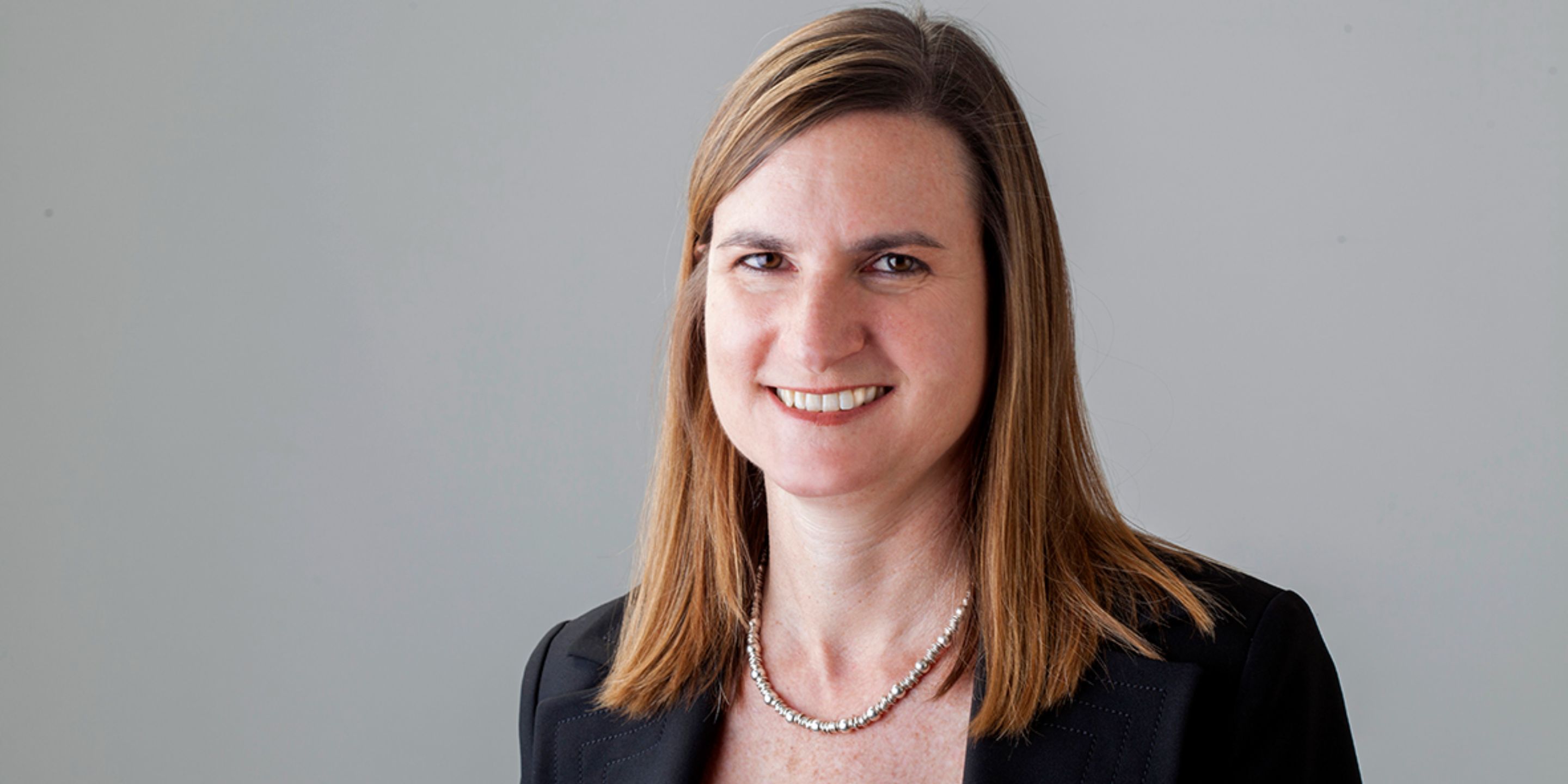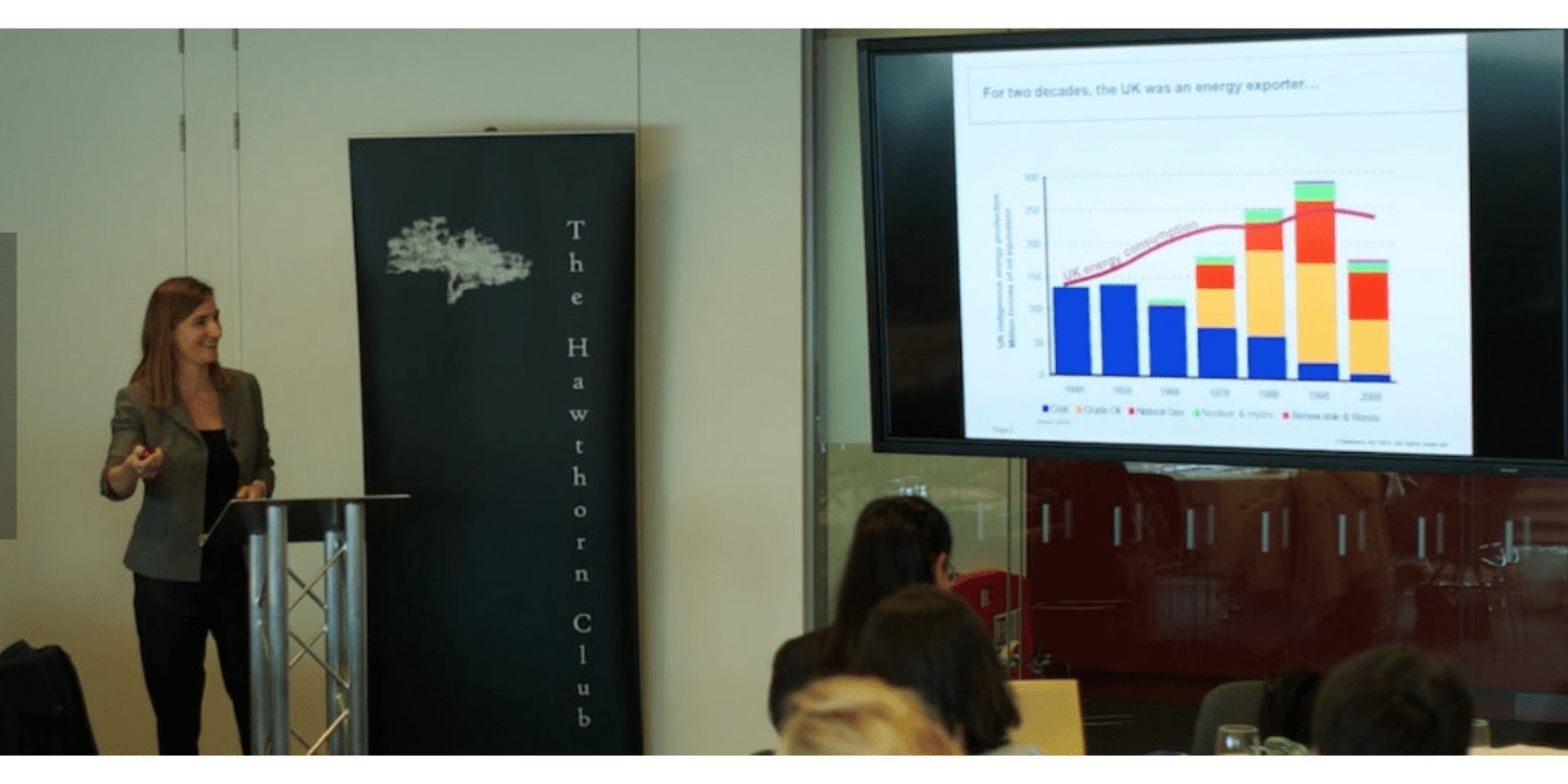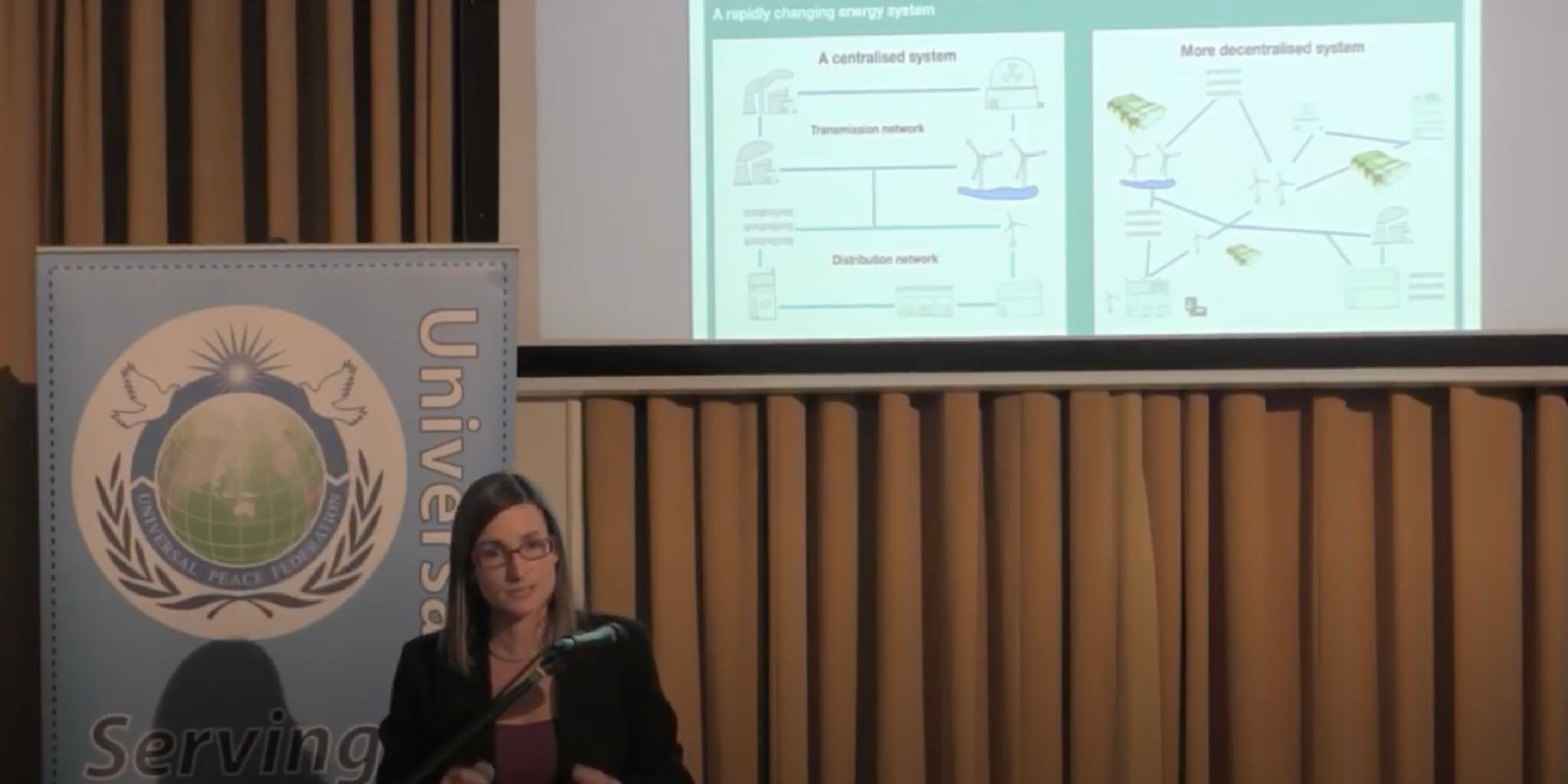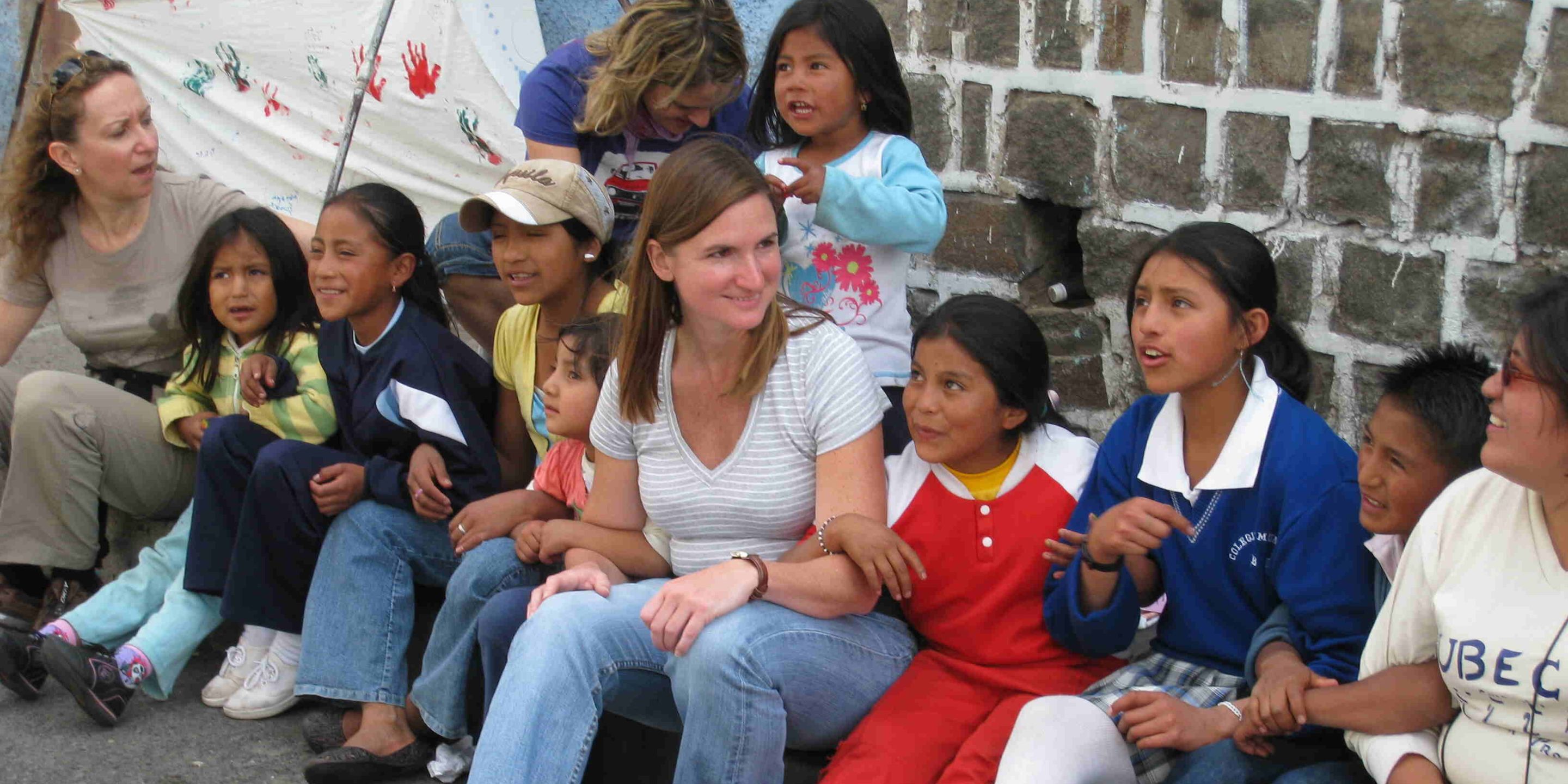Jenita Riat, Director at Human Capital, discusses career transformation, mentoring and fostering equality with Tania Songini, a non-executive director and consultant, active mainly in the energy and sustainability space, and former group finance director at Siemens.
An entrepreneurial spirit, an ability for building relationships and significant language skills helped Tania Songini achieve success in her roles as finance and commercial director across multiple business areas (logistics, healthcare, energy) at German engineering giant Siemens. Her renewable energy experience has since led to a new phase in her career, supporting sustainability-focused businesses in renewable energy and wider infrastructure development and implementation, as well as with their broader ESG agenda.
In 1994, following an internship with the German company AEG, Songini was offered the opportunity to join their graduate trainee program for finance executive management in Frankfurt. The AEG business Songini joined was soon acquired by Siemens and a seven-month internship program quickly turned into an 18-year career. Songini believes her multicultural upbringing was an important contributing factor in forging her successful career. “I’m half Italian, half English and grew up in different African countries. I studied political science and international relations and speak six languages. This exposure to other realities from an early age later fostered my ability to negotiate and build consensus with customers in different parts of the world.”
Adapting to new environments from childhood instilled in Songini respect and appreciation of other cultures. “It taught me the importance of listening to others and developing an awareness of their needs as a means to establishing a constructive working relationship based on trust,” she explains. “In my career at Siemens that was an advantage. My managers recognised my ability to communicate and work effectively with partners from other countries.”
Such skills led to Songini’s first finance director role in Siemens’ logistics division in 1999, which saw her working with customers in Europe, Latin America, and the US. The CFO of the division, who had become her mentor, suggested that Songini be exposed to Siemens’ broader business activities by moving to Siemens Management Consulting. This position opened Songini’s eyes to multiple new sectors including mobile telecommunication networks and industrial automation, as she assisted in shaping future strategies for Siemens’ businesses.
I was fascinated by the technologies Siemens was developing in many sectors such as energy, mobility, healthcare, and driven by my curiosity to understand these technical solutions
After two years working as a senior consultant, Songini left Germany and moved back into an operational position as finance director for Siemens’ healthcare business in the UK and North-West Europe (valued at €800m) in 2005. She spent six years learning the nuts and bolts of the medical imaging and blood diagnostic business, including managed equipment services for hospitals, before moving to Siemens Energy UK and NW Europe in 2011 – which was a far larger business valued at €4bn, and one that was at the forefront of a wind power revolution across NW Europe.
The attraction of working for a company like Siemens, Songini says, is that as a finance director she was able to move across sectors, from the logistics side of the business to healthcare, eventually focusing on energy. Her time working within the energy division was among Songini’s top career highlights. “In those years, when offshore wind in particular was taking off, it was fascinating to be part of an organisation that was the market leader,” Songini comments.
The move to energy did come with its challenges however, as this side of the business had grown exponentially over four years. As the finance director, she contributed to changing operations to align with that growth – putting in place the processes needed in a larger and more complex business and making sure these were fit for purpose.
Another challenge Songini faced, particularly as a young woman earlier in her career, was winning the respect and trust of her engineer colleagues. “I was fascinated by the technologies Siemens was developing and driven by my curiousity to understand these technical solutions. As an example, after only a couple of months at Siemens Energy, colleagues were positively surprised, and discovered a valuable ally, when they realised how quickly I had got up to speed with the main technical issues on our large wind and transmission projects and what the main challenges were with regards to project implementation,” Songini says.
Also, never forgetting the important role her early mentors had played in helping her career development, Songini has used her experience to foster new talent throughout her time at Siemens and beyond. “I worked very hard at Siemens, but I was also offered opportunities as a result,” she says. “After about five years working as a finance director, I felt I wanted to start giving back to others within the organisation.” By the time Songini left Siemens in 2015, she had mentored several of the future finance directors working in the NW Europe organisation.
After leaving Siemens in search of a change of pace, Songini went on to transform her career. “I came to a point in my mid-40s where I needed to give more space to other interests and to my private life.” She decided to build a portfolio of non-executive roles and now sits on the boards of several key innovators in the energy, sustainability, and economic development spheres. She also works as a consultant for Siemens Healthcare in Southern Europe, and leads a charity helping street children in Ecuador.
As a board member at one of the UK’s first onshore wind developers Thrive Renewables, which was established in the early 1990s, Songini has helped the company to diversify into new markets, including solar and storage. Similarly at Guernsey Electricity, the board on which Songini sits, is helping the utility to reposition itself for the energy transition. “We, as non-executive directors, act as a sounding board for the executives in this challenging transition,” she says. “We make sure it is moving ahead at the right pace, considering the various options available and the right mix of technologies.”
Songini also works with the Private Infrastructure Development Group (PIDG), a company whose objective is to encourage private infrastructure investment in developing countries and contribute to economic growth and poverty reduction in the poorest countries in Africa and Asia. Songini serves as Chair of the Audit Committee on several of the boards she works with, including PIDG, a role that involves working closely with the CFO and exercising oversight over financial and statutory reporting.
These roles allow Songini, who is also a founding and advisory board member of the Hawthorn Club (the international network for executive women in energy), to continue to support diversity in the industry through mentoring and networking. At Siemens, Songini led the diversity initiative across NW Europe focusing on mentoring, unconscious bias training, and strengthening flexible working arrangements. “We looked at a number of topics to enable more diversity at Siemens and to make it easier for women to pursue a career,” Songini adds. She firmly believes that by encouraging women to feel confident enough to pursue that next step in their career, and creating enabling and flexible working practices, companies foster more well-rounded management teams and discussions due to greater diversity of perspectives and approaches to problem solving.
Describing herself as an honest critical friend, advisor, and challenger to the companies she is now working with, Songini says she is eager to continue supporting others in navigating the energy transition, on what promises to be a fascinating journey.
Tania Songini’s top tips for career success
- Make a sustained effort to really understand the people around you.
“Showing an interest in other people creates trust and that is key to the success of a business relationship.” - Educate yourself.
“Be curious and constantly expand your knowledge. This wins the respect of colleagues and partners, and they will see you as complementing and enriching their work. Take online courses, go to conferences where you can listen to the experts and network to learn from peers.” - Have a sense of humour.
“A shared bit of laughter or a joke at the right moment can relax a tense environment at work and undoubtedly helps strengthen team spirit.”




